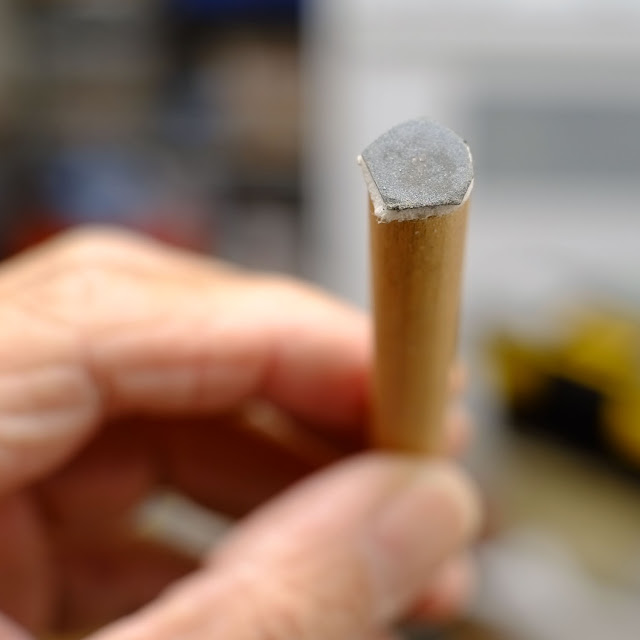 |
| Read the article here. |
For years, I've used pencil erasers to remove the green oxidation that occurs when batteries leak during storage. The green corrosion is often found deep within the battery compartments, areas where a pencil's eraser might easily reach. Having found a bit of corrosion in the battery compartment of my SB700 flash, I went looking for a pencil eraser to facilitate its removal. Alas, in this digital age no pencil was to be found, so improvisation would be the key to my ultimate success.
After giving the problem some thought, I went to a local hardware store and bought some double-sided mounting tabs. Luckily, they came pre-cut in convenient 1" squares which would be than enough for what I had in mind. Next, I rummaged through my collection of silicon carbide (dark grey) abrasive papers and found a scrap of 600 grit paper. Next, I located a bit of 3/8" wooden dowel. I cut off a 3" section and carefully squared off the end.
Next came the simple part. I used a pair of scissors to cut off a 1/2 square of the mounting tab and attached it to the dowel. Using a knife, I cut a bit of the 600 grit abrasive paper and stuck it on the tab. Finally, I trimmed away the excess tab and abrasive paper.
If and when you decide to make your own contact cleaner, don't use scissors to do the trimming. You may have heard that you can sharpen scissors by simply cutting a sheet of abrasive paper. I suspect it does the exact opposite. I've never felt inclined to waste both abrasive paper and a pair of scissors to prove, or disprove, this bit of folksy advise.
 |
| You can see from the slight depression that this improvised cleaner made full contact. |
You can see the finished product here. Using my fingertips, I twisted the dowel in the battery compartment while applying downward pressure to the corroded contact. When the cleaning was finished, I used some canned compressed air to blow away any abrasive particles left in the battery chamber. The procedure successfully cleaned the battery contacts, so my SB700 is now as good as it ever was. I found that the soft nature of the adhesive tab could easily adapt to the contours of the raised dimple often found on the contacts, making my selection of the adhesive tab a win-win for everybody.
Cheap and easy, I now have a lifetime supply of battery contact cleaners for just a few bucks. Neat.

No comments:
Post a Comment